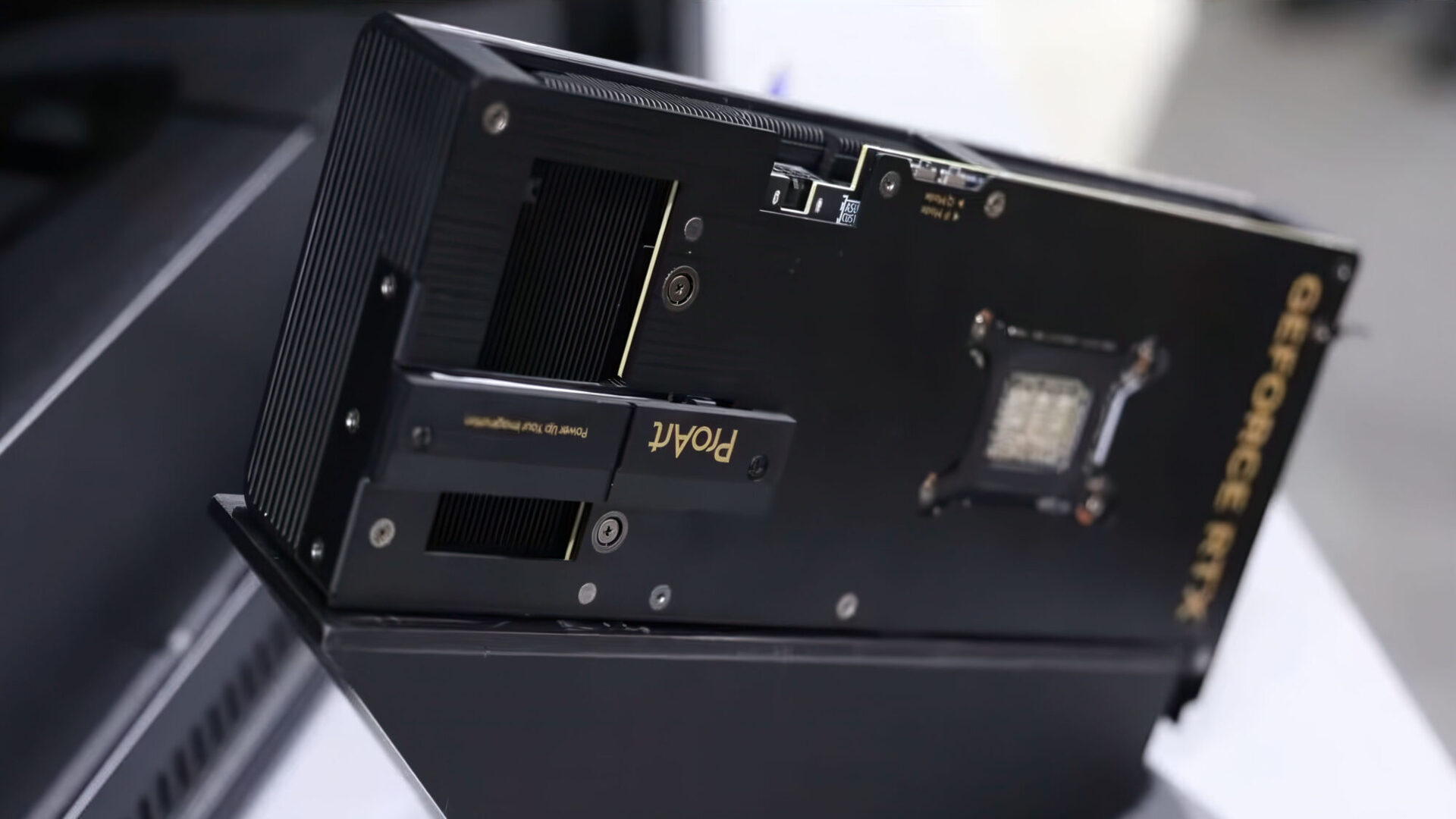- Asus RTX 5080 now doubles as AI hardware and a surprisingly cool SSD bay
- PCIe lanes aren’t just for GPUs anymore, thanks to Asus’ hybrid hardware approach
- Asus is developing Multi-LM so AI devs can offload models straight to onboard SSDs
The unusual GeForce RTX 5080 GPU, first spotted a few weeks ago with an SSD slot, is no longer just a hardware oddity.
Asus North America has now confirmed the ProArt RTX 5080 SSD Edition is a real product.
As unusual as it may sound, the decision to pair high-performance graphics processing with solid-state storage is part of a broader plan involving artificial intelligence and local model development.
A hybrid GPU-storage design targeting AI development
Despite Asus remaining tight-lipped on a release date and shipping configuration, some technical details have begun to emerge, alongside a few unanswered questions.
One of the biggest surprises is the 90-degree rotated GPU layout – Asus modified the printed circuit board (PCB) design so that the GPU is mounted perpendicular to the usual orientation.
This is not a configuration found in any other RTX 5080 models, suggesting a custom approach that accommodates the SSD and improves airflow.
Asus claims this layout helps the SSD benefit from, “airflow provided by the card’s fans,” although the SSD is not in direct contact with the main heatsink.
Sign up to the TechRadar Pro newsletter to get all the top news, opinion, features and guidance your business needs to succeed!
It is instead cooled via a secondary heatsink and passive airflow, reportedly keeping the SSD about 10 degrees Celsius cooler than a typical M.2 drive mounted on a motherboard.
The SSD integration also exploits PCIe bifurcation, meaning unused PCI Express lanes are reassigned to support the drive.
The company has previously applied this approach to RTX 4060 series cards, which did not fully saturate the PCIe interface, leaving enough bandwidth for an M.2 slot.
Now, with the RTX 5080 ProArt edition, the idea is refined to suit high-end AI workflows, although it introduces trade-offs, the GPU may not always have access to all PCIe lanes, potentially limiting peak performance under certain workloads.
Perhaps the most significant revelation lies in Asus’ software ambitions – the company is developing a tool called Multi-LM, intended for developers working with large language models.
Asus says, this tool will “allow AI developers to offload models directly to the storage, potentially enabling local model development without needing constant memory swaps to slower system drives.”
This will be of interest to those looking for the best LLM for coding, and positions the RTX 5080 SSD Edition as more than just a gaming card; it could become one of the best AI tools for local inference and prototyping.
Asus has only released a single render of the card and has not confirmed performance metrics or availability.
The question of whether this concept delivers meaningful real-world gains or just adds complexity remains unanswered.
Via Videocardz
You might also like
- We’ve listed the best portable SSDs right now
- These are the best NAS devices around
- We’ve also rounded up the best cloud storage platforms on offer
Efosa has been writing about technology for over 7 years, initially driven by curiosity but now fueled by a strong passion for the field. He holds both a Master’s and a PhD in sciences, which provided him with a solid foundation in analytical thinking. Efosa developed a keen interest in technology policy, specifically exploring the intersection of privacy, security, and politics. His research delves into how technological advancements influence regulatory frameworks and societal norms, particularly concerning data protection and cybersecurity. Upon joining TechRadar Pro, in addition to privacy and technology policy, he is also focused on B2B security products. Efosa can be contacted at this email: [email protected]

